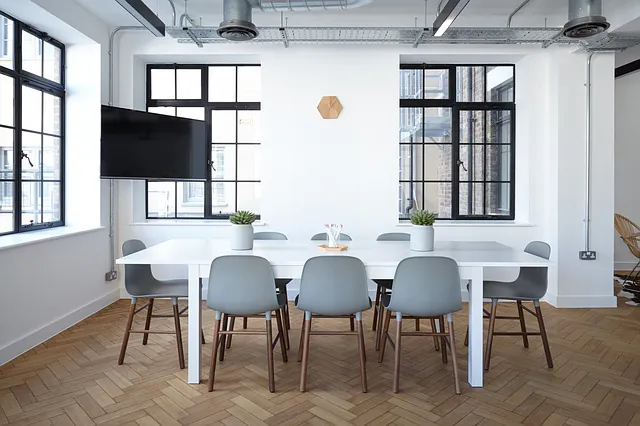In the world where technology is transforming every corner of our lives, the evolution of institutional furniture design is no exception. From digital devices that shape our communication to smart homes adjusting our living comfort, the wave of innovation does not stop there. This article explores how technology has not only influenced the aesthetics of institutional furniture design but has also revolutionized its functionality.
Technological Innovations in Material Science
In the past, the options for furniture materials were somewhat limited. However, technology has broadened our horizons, enabling us to create furniture with innovative materials. Technological advancements in material science have opened up a realm of possibilities for the evolution of institutional furniture design.
For instance, materials like engineered wood, recycled plastics, and advanced metals offer a new blend of aesthetics, durability, and sustainability. These technologically enhanced materials are not only durable but also contribute to sustainability efforts, paving the way for the rise of eco-friendly recycled plastic outdoor furniture manufacturers.
Integration of Smart Features in Furniture Design
With the integration of smart features into furniture, we’re witnessing an exciting time in the evolution of institutional furniture design. Such features enhance both functionality and user experience. For example, desks with embedded wireless chargers or chairs with sensors adjusting to the user’s posture represent the onset of smart furniture.
In various institutional settings, these smart features are increasingly becoming integral. From hotel furniture with integrated ports and outlets for devices to patient room furniture with built-in health monitoring features, the possibilities are endless.
Virtual Reality and 3D Modeling in Design Process
The design process of furniture has also undergone a significant transformation due to technology. Thanks to virtual reality and 3D modeling, designers can now visualize and modify their designs with a degree of accuracy that was previously unimaginable.
The benefits of using these technologies are manifold. They not only speed up the design process but also enhance the precision of the final product. Designers are now capable of creating a wide range of furniture, from dorm furniture to church furniture, employing these technological marvels.
Collaboration and Connectivity in Institutional Furniture
As workspaces and learning environments become increasingly collaborative, the evolution of institutional furniture design has adapted to accommodate this shift. Today, furniture is being designed to foster collaboration and connectivity.
Consider modern office furniture equipped with integrated tech hubs, or classroom furniture designed to promote group work. These designs facilitate teamwork and make the sharing of ideas easier than ever.
Impact of Technology on Ergonomics and Health
One of the critical areas where technology has left an indelible mark is ergonomics and health. By considering ergonomic principles in design, furniture manufacturers aim to create pieces that not only look good but also promote user well-being.
The integration of health-focused features, such as adjustable desks to promote better posture or chairs designed to reduce strain, underscores the role technology plays in improving our health. This shift towards ergonomic designs, driven by technological innovation, illustrates the evolution of institutional furniture design in the most profound way.
In conclusion, the evolution of institutional furniture design is continuously being shaped by technology. Be it the exploration of new materials, the integration of smart features, or the influence on ergonomics and health, every facet of furniture design is experiencing a technological transformation.
Material science advancements have breathed new life into the range of materials available for furniture design. From engineered wood to recycled plastics, we have embarked on a journey towards durable, sustainable, and aesthetically pleasing institutional furniture.
With the integration of smart features into furniture, we have ushered in a new era in the evolution of institutional furniture design. Furniture today is designed not only to be functional and beautiful but also to enhance user experience in unique ways.
Technologies like virtual reality and 3D modeling have become game-changers in the design process. They have made the design process more efficient and accurate, opening up new possibilities in the world of furniture design.
The evolution of institutional furniture design has also embraced the shift towards collaboration and connectivity in today’s world. Modern furniture is designed to foster collaborative environments and to seamlessly integrate with technology, making our lives easier and more connected.
The most compelling influence of technology on institutional furniture design is perhaps its impact on ergonomics and health. Technology-driven designs aim to promote user well-being, emphasizing the role of furniture in enhancing our quality of life.
We are standing at a fascinating crossroad in the evolution of institutional furniture design. As we continue to embrace technology, the future of institutional furniture design promises to be as exciting as it is transformative. With the rate of technological advancements, who knows what innovative designs and features the future may bring to institutional furniture?
Take a look at some exciting design options from solid wood furniture manufacturers and fine leather furniture manufacturers to get a taste of how far we’ve come, and perhaps, where we’re headed next.
In this journey of the evolution of institutional furniture design, technology is our most trusted ally, pushing the boundaries and driving us towards a future of endless possibilities.



